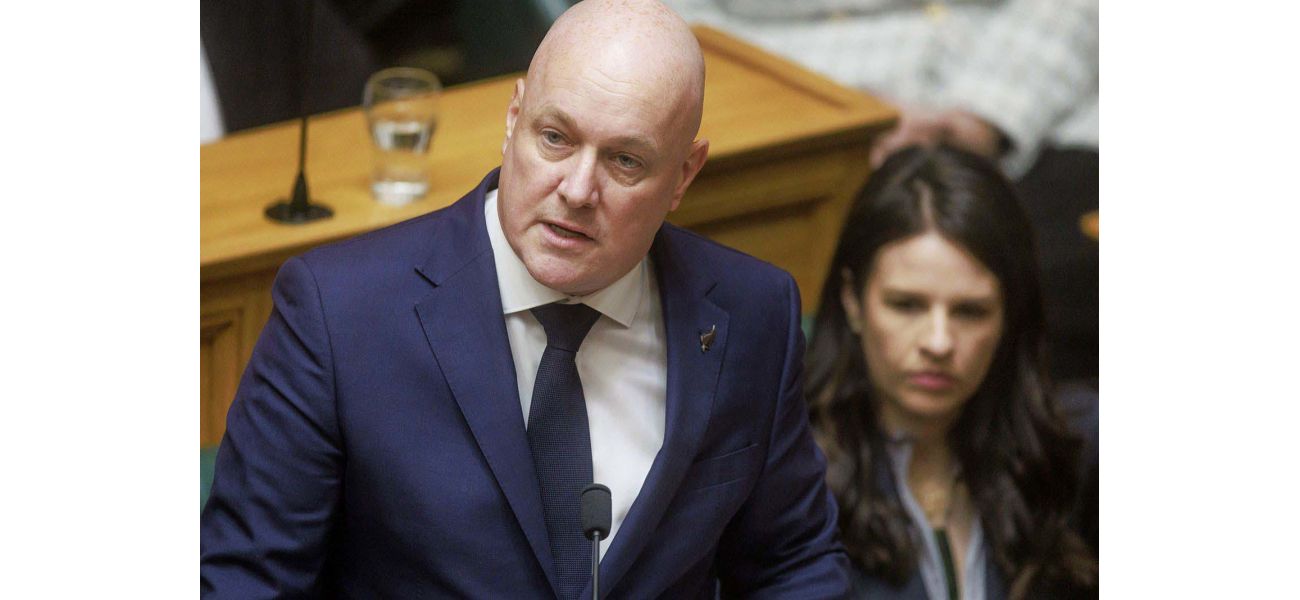New Zealand authorities say sorry to those who suffered abuse in state and church care.
New Zealand's PM Luxon formally apologized without reservation.
November 12th 2024.

On Tuesday, New Zealand's Prime Minister Christopher Luxon stood before Parliament and offered a heartfelt and solemn apology for the immense suffering endured by thousands of children and vulnerable adults in state care. He acknowledged the widespread abuse, torture, and neglect that occurred over the span of seven decades, with an estimated 200,000 people affected. As he addressed lawmakers and a gallery filled with survivors, Luxon expressed deep remorse for the atrocities that took place.
"It was horrific. It was heartbreaking. It was wrong. And it should never have happened," Luxon declared, his voice filled with emotion. He recognized that for many, the abuse they endured changed the course of their lives, and he took responsibility on behalf of the government. Luxon went on to emphasize the significance of his words, assuring the survivors that he had read their stories and believed them.
The Prime Minister made it clear that this apology extended to previous governments as well, acknowledging that the abuse had been ongoing for several decades. The inquiry's report, released in July after a six-year investigation, revealed the shocking truth about the treatment of children and vulnerable adults in the care system. The results were described as a "national disgrace," with almost a third of those in state, foster, and church care experiencing physical, sexual, verbal, or psychological abuse. This included exploitation and neglect of many more individuals.
Furthermore, the report highlighted the disproportionate number of Maori, New Zealand's Indigenous people, who were affected by this abuse. This fact further emphasized the gravity of the situation and the need for the government to take responsibility and make amends. As a response to these findings, Luxon's government acknowledged for the first time that the historical treatment of some children in a state-run hospital amounted to torture. They also pledged to apologize to all those who suffered abuse in state, foster, and religious care since 1950.
Despite the government's efforts, some survivors and advocates expressed disappointment before the apology was made. They criticized the lack of a concrete plan for financial compensation for those who were abused. However, Luxon's apology was a crucial step towards acknowledging and addressing the pain and trauma endured by so many. It was a sincere and unreserved apology, with the hope of providing some closure and healing for the survivors and their families.
"It was horrific. It was heartbreaking. It was wrong. And it should never have happened," Luxon declared, his voice filled with emotion. He recognized that for many, the abuse they endured changed the course of their lives, and he took responsibility on behalf of the government. Luxon went on to emphasize the significance of his words, assuring the survivors that he had read their stories and believed them.
The Prime Minister made it clear that this apology extended to previous governments as well, acknowledging that the abuse had been ongoing for several decades. The inquiry's report, released in July after a six-year investigation, revealed the shocking truth about the treatment of children and vulnerable adults in the care system. The results were described as a "national disgrace," with almost a third of those in state, foster, and church care experiencing physical, sexual, verbal, or psychological abuse. This included exploitation and neglect of many more individuals.
Furthermore, the report highlighted the disproportionate number of Maori, New Zealand's Indigenous people, who were affected by this abuse. This fact further emphasized the gravity of the situation and the need for the government to take responsibility and make amends. As a response to these findings, Luxon's government acknowledged for the first time that the historical treatment of some children in a state-run hospital amounted to torture. They also pledged to apologize to all those who suffered abuse in state, foster, and religious care since 1950.
Despite the government's efforts, some survivors and advocates expressed disappointment before the apology was made. They criticized the lack of a concrete plan for financial compensation for those who were abused. However, Luxon's apology was a crucial step towards acknowledging and addressing the pain and trauma endured by so many. It was a sincere and unreserved apology, with the hope of providing some closure and healing for the survivors and their families.
[This article has been trending online recently and has been generated with AI. Your feed is customized.]
[Generative AI is experimental.]
0
0
Submit Comment





